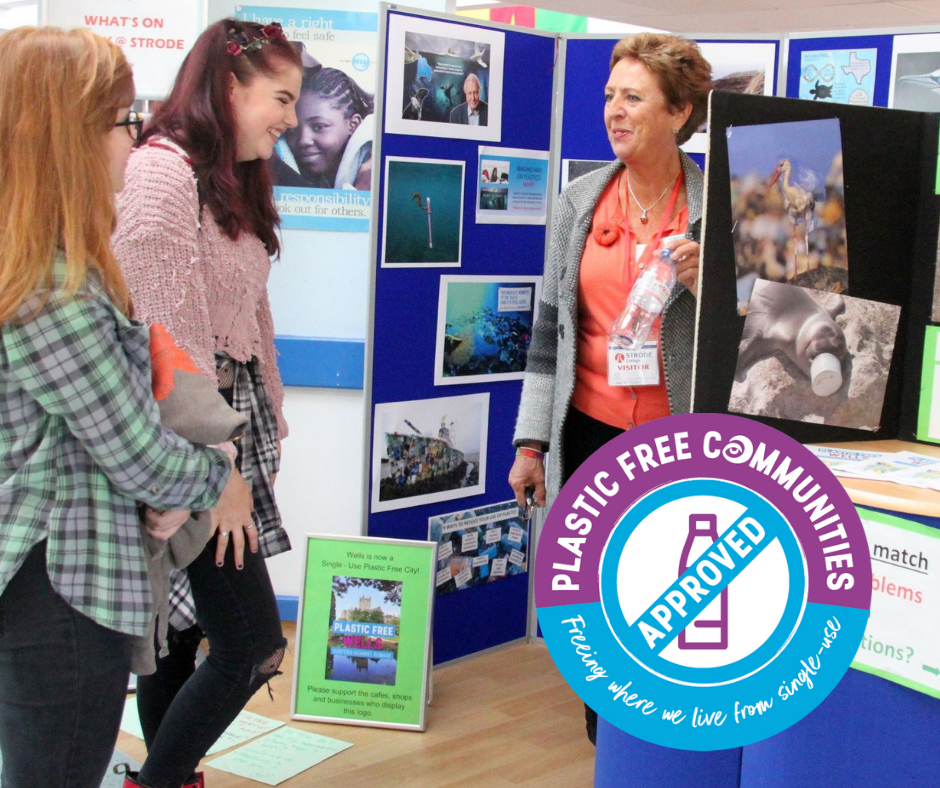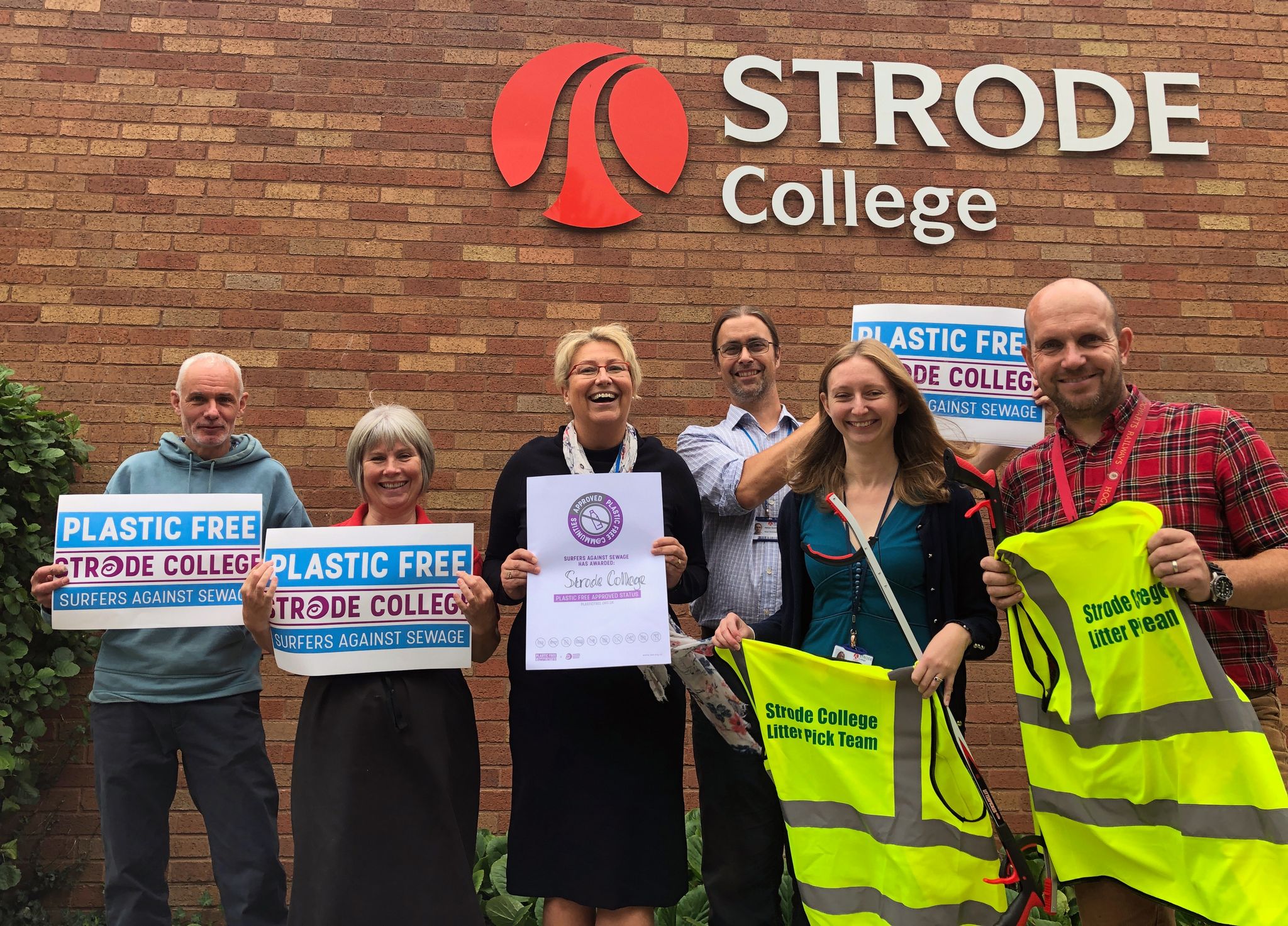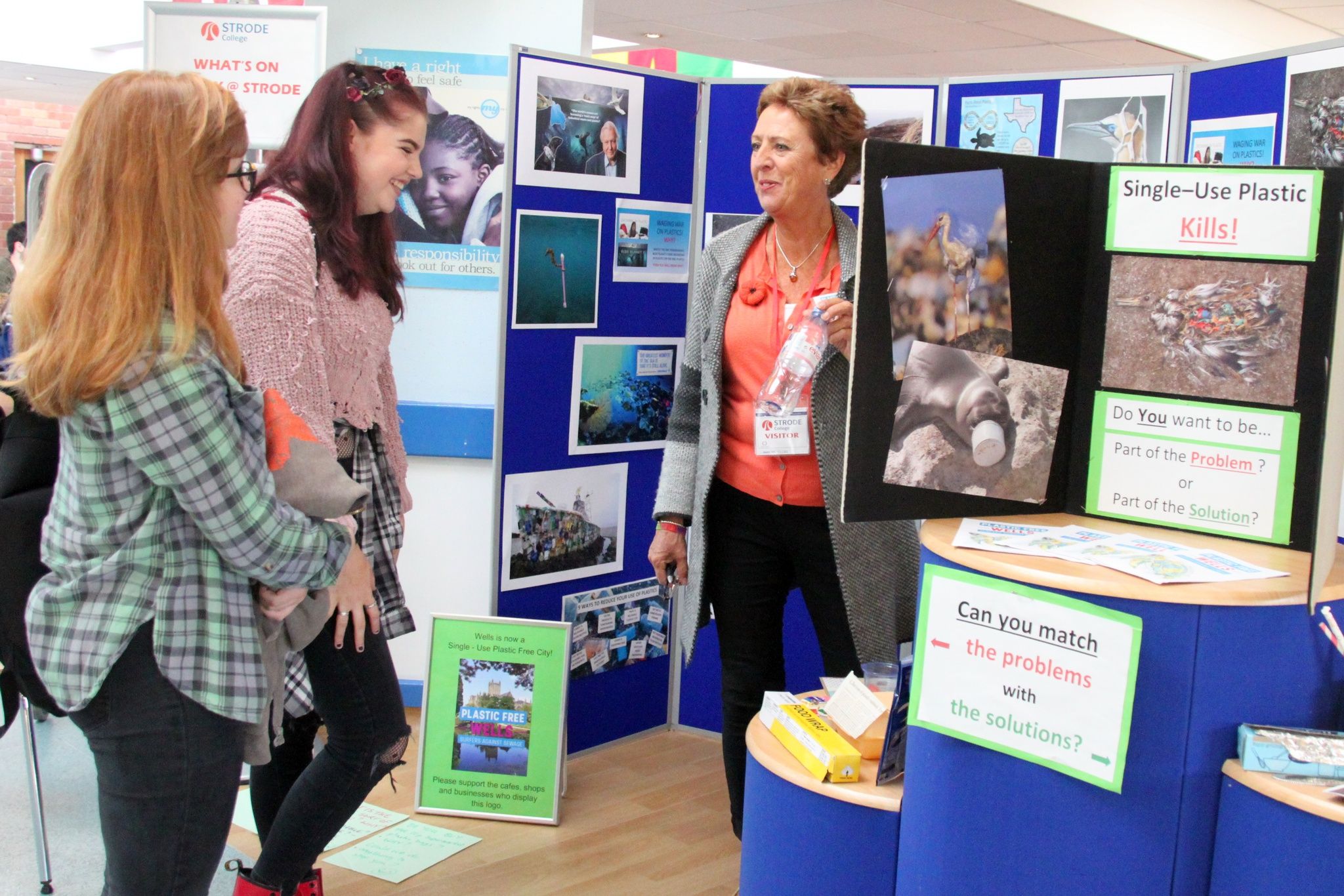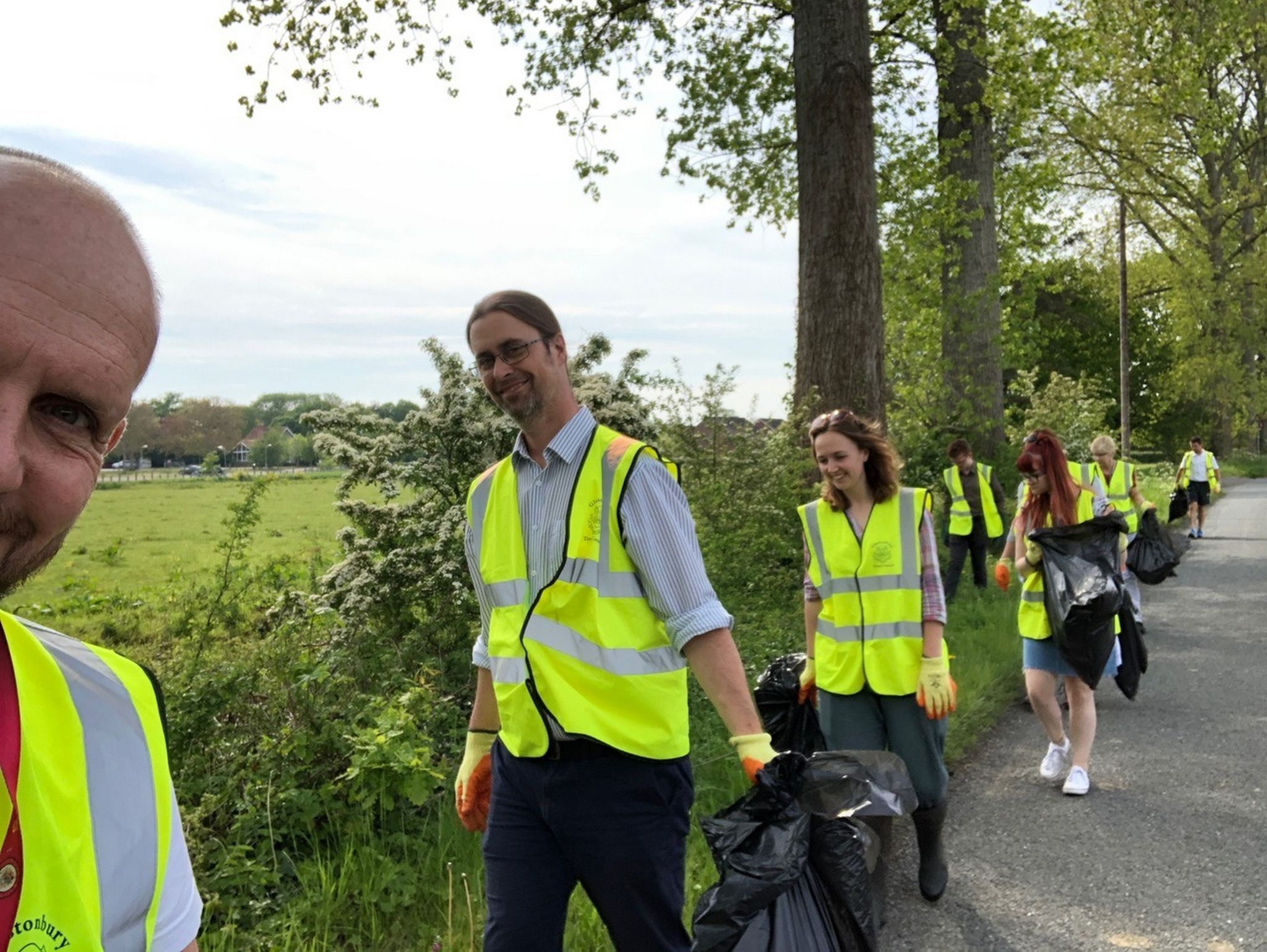
Strode College Becomes the first Plastic Free Communities Approved College in the UK
Strode College has joined a growing network of communities across the UK who are leading the way to tackle throwaway plastic at source. The college has become the first in the UK to be awarded Plastic Free Approved status by SAS, in recognition of the steps it has taken to start reducing the impact of single-use plastic and encouraging new habits among students, staff and the wider community.

For almost two decades, students at Strode College have led a commitment to looking after the environment. They kick-started action in 2002 with a paper recycling system, which paved the way for the creation of a formal Sustainability Group, including members of staff and students, in 2013. Four years later, when BTEC Creative Media student Max Doughty started calling for a shift away from single- use plastics, it meant the college was ready to pull together to build a more sustainable campus and take action in the local community.
Staff member Adrian Smith signed up to lead the Plastic Free Communities campaign after meeting with Plastic Free Wells, who exhibited at the college Freshers Fair. Registering with the SAS Plastic Free Communities (PFC) movement, Adrian, a member of the Strode Sustainability Group, together with art and design lecturer Duncan Cameron, pulled together college management, students and staff to put in place a five-point plan. The PFC objectives included raising awareness and working to reduce SUPs on the college premises, setting up a steering group with management support and working with local businesses, organisations and community groups to spread the word.
Adrian Smith said: “We are delighted by the support we have received from both staff and students. The support we have received from Plastic Free Wells, firstly steering us towards this campaign and then here on campus, has also played a key role in kick-starting action to reduce our reliance and consumption of throwaway plastic.
“It’s also putting pressure on our suppliers to become more eco-friendly in what materials they are providing us with, in order to be able to sustain our working relationship with them. We feel that this will help spread the support and allow us to be a leader, hopefully encouraging other local business and colleges to follow suit.”
Actions the college has taken include:
- Promoting Coffee refills to reduce the number of disposable cups given out
- Setting up water refill points around the campus and getting rid of plastic water bottles
- Ditching sachets in favour of refill condiment bottles
- Increased recycling to capture more waste
Going forward the college is looking at a plastic-free vending machine, office practice and the possibility of an on-site composting unit to deal with compostable food containers/packaging.
Christine McClements, Head of Catering services said: “I would love to get a local food digester so we don’t have to pay to send food away and can make our own compost on site. We can then use the compost for our own sustainable garden.”

Strode College has organised and been involved in various events in the college and wider community to highlight the effects of plastic pollution on marine life. ‘One World Week’ is organised annually with student support and last year the theme was focused around reducing plastic pollution. This year the focus is climate change and staff are expected to openly discuss the issues with their students, with a particular focus on the continual reduction of single use plastics, to contribute to the sustainability agenda.
Art students are encouraged to produce sustainability-focused work and regular community cleans take place which involve people from across the whole community, including primary schools, adult learners and neighbouring Plastic Free Communities. The college has even got its own community clean kit, that can be booked out.
Adrian Smith said: “We want to be a leader in Street and this area of Somerset, and therefore are constantly looking to connect with other individuals, businesses, and activists in order to establish positive working relationships to join together as a wider network to reduce plastic pollution out in the wider local community.”

Duncan Cameron, Chair of the Strode College Sustainability Group added: “We are delighted to be awarded this SAS recognition, which is a very positive accreditation and it’s terrific that the work of so many staff and students has had such a visible impact on the amount of plastic that we use on the Strode campus.
“This is of course only a step on a journey towards ridding our lives of single use plastics but it’s welcome encouragement as we, alongside so many other institutions and individuals, try to turn the tide in recognition of the negative impact we are having on the planet.”
Rachel Yates, SAS Plastic Free Communities Project Officer, said: “It’s great to see the work that Strode College has done to reduce the availability of avoidable plastics, raise awareness and encourage students and staff to refill and reuse. Colleges and universities, like schools, have a huge role to play in helping young people set habits for life. The impact of Strode College’s commitment to tackle plastic pollution at source could have long lasting benefits for generations to come.
“We have over six hundred communities across the UK working to reduce single use plastic and the impact it has on our environment. Every step those communities and the individuals in them take is a step towards tackling the problem at source, challenging our throwaway culture and encouraging the habit and system changes we need to see.”
More information on Plastic Free Communities can be found by clicking here
Plastic Free Communities is an ambitious community initiative designed to unite and empower individuals, small businesses, local government and community groups to reduce their collective plastic footprint and protect the environment together. Driven by inspirational local volunteers, we are building a new and exciting community movement tackling single-use plastics and plastic litter in our villages, towns, cities and rural locations. This highly inclusive initiative, created for all ages and backgrounds, is designed to get the whole community active and do something positive to reduce the amount of plastic in the local environment. We believe that united communities lead to cleaner beaches, streets, parks and riverbanks.
